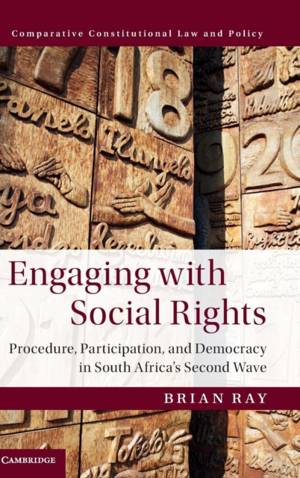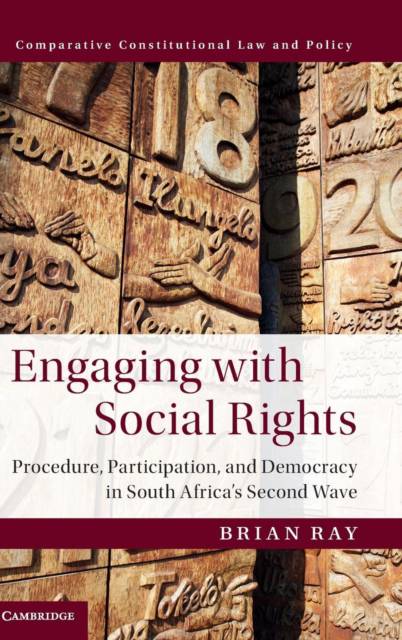
Door een staking bij bpost kan je online bestelling op dit moment iets langer onderweg zijn dan voorzien. Dringend iets nodig? Onze winkels ontvangen jou met open armen!
- Afhalen na 1 uur in een winkel met voorraad
- Gratis thuislevering in België vanaf € 30
- Ruim aanbod met 7 miljoen producten
Door een staking bij bpost kan je online bestelling op dit moment iets langer onderweg zijn dan voorzien. Dringend iets nodig? Onze winkels ontvangen jou met open armen!
- Afhalen na 1 uur in een winkel met voorraad
- Gratis thuislevering in België vanaf € 30
- Ruim aanbod met 7 miljoen producten
Zoeken
Engaging with Social Rights
Procedure, Participation and Democracy in South Africa's Second Wave
Brian Ray
€ 201,95
+ 403 punten
Uitvoering
Omschrijving
With a new and comprehensive account of the South African Constitutional Court's social rights decisions, Brian Ray argues that the Court's procedural enforcement approach has had significant but underappreciated effects on law and policy, and challenges the view that a stronger substantive standard of review is necessary to realize these rights. Drawing connections between the Court's widely acclaimed early decisions and the more recent second-wave cases, Ray explains that the Court has responded to the democratic legitimacy and institutional competence concerns that consistently constrain it by developing doctrines and remedial techniques that enable activists, civil society and local communities to press directly for rights-protective policies through structured, court-managed engagement processes. Engaging with Social Rights shows how those tools could be developed to make state institutions responsive to the needs of poor communities by giving those communities and their advocates consistent access to policy-making and planning processes.
Specificaties
Betrokkenen
- Auteur(s):
- Uitgeverij:
Inhoud
- Aantal bladzijden:
- 394
- Taal:
- Engels
- Reeks:
Eigenschappen
- Productcode (EAN):
- 9781107029453
- Verschijningsdatum:
- 21/04/2016
- Uitvoering:
- Hardcover
- Formaat:
- Genaaid
- Afmetingen:
- 152 mm x 229 mm
- Gewicht:
- 693 g

Alleen bij Standaard Boekhandel
+ 403 punten op je klantenkaart van Standaard Boekhandel
Beoordelingen
We publiceren alleen reviews die voldoen aan de voorwaarden voor reviews. Bekijk onze voorwaarden voor reviews.











